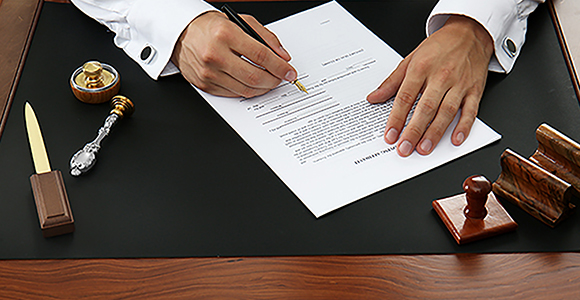WE CAN HELP YOU CALL US TODAY
WE CAN HELP YOU CALL US TODAY

Even when a person goes through the process of drafting a will or creating a trust, his or her estate must still go through formal probate proceedings, which can be time-consuming and costly. During this time, a disgruntled family member could also come forward and claim that the estate plan is invalid, which could result in the entire will being thrown out. Fortunately, there are ways to help prevent this type of will contest, one of which is to use a small estate affidavit. This method is only available to certain qualifying individuals, so if you want to learn more about the eligibility requirements for filing a small estate affidavit, it is important to speak with an experienced contested estates attorney who can advise you.
When can a Small Estate Affidavit be Used?
Small estate affidavits can be submitted in lieu of a formal estate proceeding, but only when the decedent owned no real estate and owned assets valued at less than $100,000. Furthermore, no letters of office giving an executor authority to distribute the estate can have been issued or pending. When these requirements are satisfied, the decedent’s beneficiary can collect the assets directly and much more quickly.
Completing the Affidavit
When submitting a small estate affidavit, a decedent’s heir must take the following steps:
A qualifying heir must also acknowledge that he or she is not aware of any dispute or conflict related to the decedent’s heirs or his or her will. It’s also important for beneficiaries to keep in mind that by signing and submitting a small estate affidavit, they are agreeing to pay off the decedent’s debts before distributing the money to anyone else. Once complete, the affidavit must be submitted to the bank, company, or person who is in control of the property in question. This entity or individual must then transfer the property as directed by the affidavit. Fortunately, the small estate affidavit doesn’t need to be filed with the court, which can make the distribution process go much more quickly.
Call a Dedicated Contested Estates Attorney
If you recently lost a loved one whose assets have been valued at less than $100,000 and he or she did not own any real estate, you may be able to submit a small estate affidavit and skip the often lengthy probate process. Please call one of the experienced contested estates attorneys at Orlowsky & Wilson, Ltd. Attorneys at Law by calling 847-325-5559 to learn more.